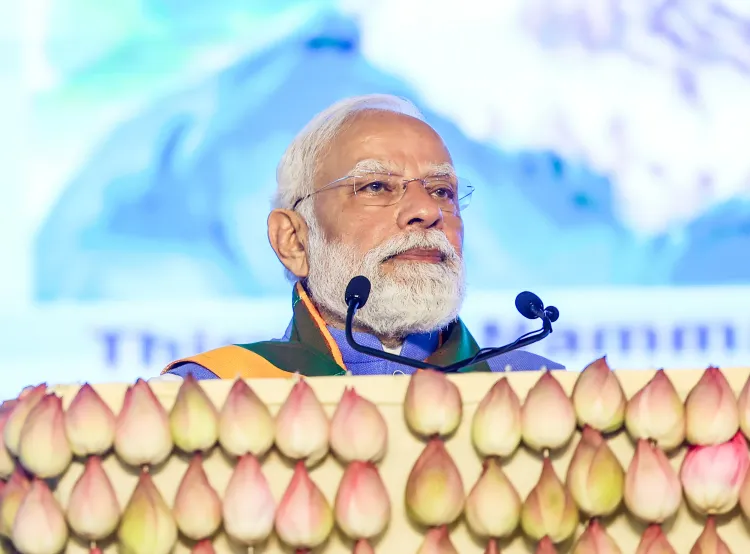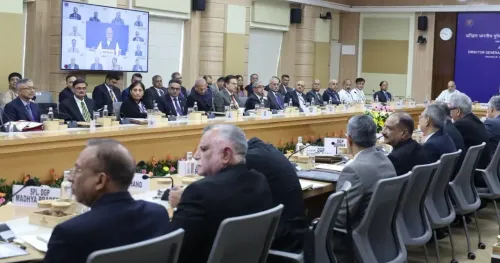How Are India’s New Labour Reforms Shaping a Future-Ready Economy?

Synopsis
Key Takeaways
- Labour reforms aim to empower workers while fostering economic growth.
- New Codes replace 29 outdated laws.
- Focus on universal social security and safer workplaces.
- Recognition of gig and platform workers.
- Shifting from a colonial mindset to a future-ready approach.
New Delhi, Nov 24 (NationPress) Prime Minister Narendra Modi emphasized on Monday the government’s groundbreaking labour reforms that are preparing India for a future-ready economy and bolstering the nation’s standing in the global value chain.
The PMO India account shared on X: “The world recognizes India’s emergence as a credible global partner. The government’s new labour reforms showcase our dedication to a future-ready economy, streamlining compliance, empowering women workers, and enhancing Bharat’s role in the global value chain!”
It referenced an article by Labour and Employment Minister Mansukh Mandaviya regarding the four Labour Codes implemented by the Narendra Modi government on November 21, which replaced 29 outdated labour laws.
These Codes support both workers and economic growth, laying a robust framework for universal social security, fair and timely wages, safer workplaces, formal acknowledgment for emerging segments like gig and platform workers, and empowering Yuva and Nari Shakti, according to the minister.
“Driven by the vision of Prime Minister Modi, these reforms represent a pivotal moment in our journey toward becoming an Atmanirbhar and Viksit Bharat,” he noted.
Mandaviya asserted that the new labour codes provide a contemporary framework demonstrating India’s preparedness to respond to the demands of a dynamic and swiftly evolving global economy.
He further mentioned that for decades, India faced challenges of weak economic growth, persistent corruption, and a lack of commitment to job creation and workers' welfare. Politically motivated disruptions frequently hindered industrial activity, deterring investments and undermining trust in the system. It is regrettable that prior governments treated labour welfare as mere rhetoric, failing to genuinely address the pressing issues faced by workers.
A significant shift in national leadership was necessary to overcome this inertia. From the historic Red Fort, Prime Minister Modi proclaimed “Shramev Jayate” (labour alone triumphs), asserting that the dignity of labour should be at the core of India’s developmental journey. This proclamation was not merely a slogan; it marked the dawn of a new national consciousness that prioritized workers in policymaking, Mandaviya highlighted.
He remarked that such a shift was long overdue. Much of India’s labour law framework originates from the 1920s-1950s and was influenced by a colonial perspective. In contrast, the world of work has dramatically transformed. The emergence of gig and platform economies, digitalization, flexible work arrangements, and modern enterprises have redefined global labour systems. Yet, India’s labour laws remained stagnant, unable to accommodate a contemporary workforce or a competitive economy.
Through his panch pran (five resolves), PM Modi urged the nation to abandon its colonial mindset and adopt a future-ready approach. The persistence of outdated laws was not due to their efficacy, but rather the previous governments' lack of political resolve, courage, and vision to modernize them in line with evolving realities and national requirements.
Mandaviya emphasized that under PM Modi’s leadership, India’s global stature has reached unprecedented levels. The world now recognizes that India is not just participating in defining the future; it is actively shaping it. However, to truly capitalize on this historic opportunity and transform potential into sustained prosperity, India must not remain tethered to a colonial-era labour framework designed for control rather than empowerment.









